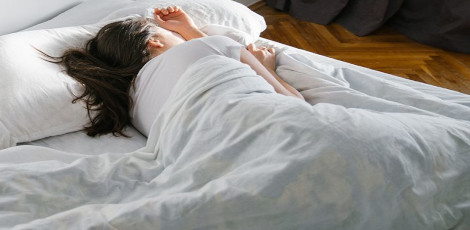Do you have the habit of napping or sleeping for a short time during daytime, it can lead to serious health issues?
Posted on: 30/Jul/2022 4:56:08 PM

How many have the habit of napping or sleeping for a short time during the day time?
It must be noted that naps are mostly taken as response to drowsiness during waking hours of time. Many research activities have been going on for years regarding studying napping during the day. It is now revealed by the researchers that napping during the day could be harmful for one`s health.
Information is that this research study has been published in Hypertension, An American Heart Association journal. The study regarding napping was conducted by a group of researchers from China based Central South University of Hunan.
The shocking piece of information is that those persons who nap during the day would have high chances of getting increased hypertension and strokes etc.
Napping is light and it would break easily and in this way it differs from regular sleeping at night. There are many who nap after eating meals and it helps in digestion etc. It is learnt by the study that napping is not actually bad for the health but when the person naps during the day time due to poor sleep at the night time then napping becomes an issue.
It is true that insufficient or poor sleep in the daytime would harm the health of a person. By sleeping poorly in the nighttime, the body won`t get the right kind of break to rejuvenate itself.
For the study purpose as many as 358415 participants from the UK bioBank and these persons did not have hypertension or strikes at the beginning of the study. It was later found by the study that when compared to never napping those who napped frequently had high risk of hypertension, strike and ischemic strokes etc. The research study was conducted for a time of 4 years and participants were studied based on their blood/urine/saliva samples plus on nap duration on a regular basis.
Research study conducted in 1996 regarding day time napping :-
It must not be forgotten that in 1996 a research study was conducted and it brought out the link between day time napping and the symptoms of depression. The study also highlighted that those persons who nap regularly in the day time were obese. Those who napped frequently in the day time complained more about the lack of sleep in the night time than those who did not nap in the day time.







